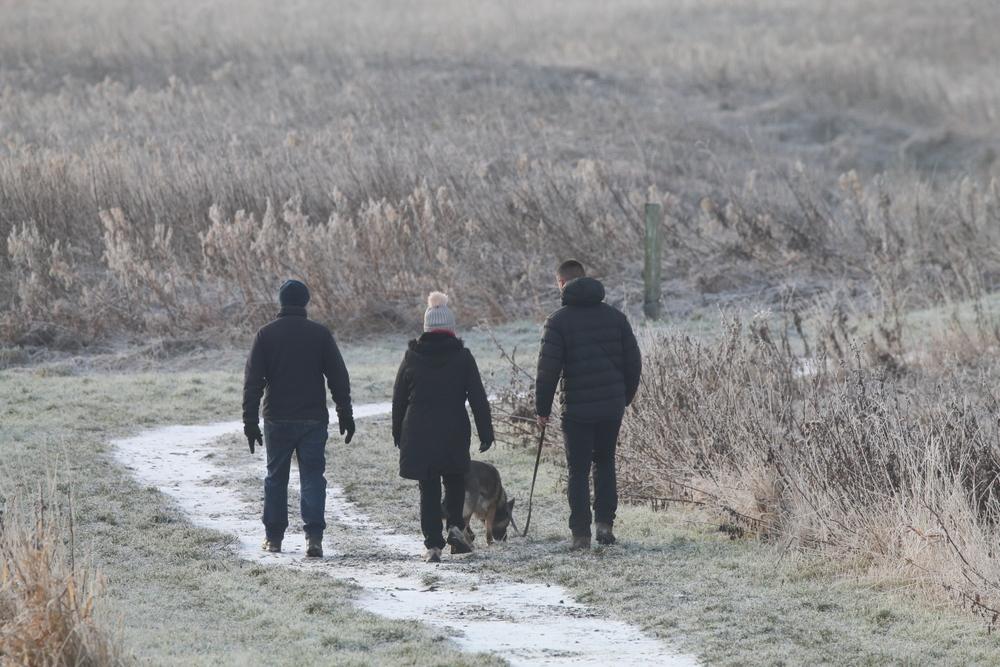Keep Warm, Keep Healthy
With expensive fuel costs and colder weather, it can be difficult to keep our homes warm enough. For many people, living in a cold home can lead to illness and for others it can worsen existing health conditions, especially for those who spend a lot of time indoors or have restricted mobility.
This keep warm pack has been supplied to help you stay warmer at home during cold weather. Additionally, many of the items can be worn under a coat for extra insulation when going outdoors.
Keeping an eye on room temperature is important and the temperature card provided in this pack will help you to do this. Your main living room should be around 18–21°C with the rest of the house at least 16°C. If your home falls below these temperatures or if you are struggling to keep your home warm, please see the next section to find out about support that may be available to help you stay warmer in your home.
Tips to help you stay warm at home
- The items in this pack can be used to help keep you warmer at home. Several thin layers of clothes trap body heat better than one thick layer. Clothes made from wool, cotton or fleecy materials are warmest.
- Keep active: we all know that exercise is good for your overall health and it can help to keep you warmer. If you are unable to get outdoors or have restricted mobility even household chores or chair exercises can improve circulation and help you to warm up.
- If you are immobile or have limited movement use a blanket as an additional thermal layer while sitting or lying down. When using a blanket take time to check that it is not going to be a trip hazard when you stand up.
- Enjoy healthy eating: a healthy diet doesn’t have to be expensive and you can still eat a wide range of delicious foods while keeping an eye on your intake of sugar, fat and salt. In colder weather, try to eat at least one hot meal a day and have plenty of hot drinks throughout the day including a non-caffeinated hot drink before bedtime. For information on healthy eating visit: www.nidirect.gov.uk/articles/healthybalanced-diet
- Try to minimise condensation in your home, for example: keep lids on pots and, if available, use extraction fans when cooking (if not available, briefly open a window to let any steam escape); try not to dry clothes on radiators; and if you use a vented tumble dryer make sure it is vented outside.
- Do not put furniture in front of radiators and close curtains at night to retain the heat generated inside your home.
- Never use a hot water bottle with electric blankets.
- If using an electric blanket please make sure it is working properly, it should be serviced at three years old and every year until it’s 10 years old, when you should dispose of it. Contact your local council Home Accident Prevention Officer for further information. For further information on fire safety and electric blankets visit www.nifrs.org/home/staying-safe/community-safety/home-fire-safety/
Tips during winter weather
In the event of extreme weather, try to plan ahead in case you are unable to leave your home for a time. Ensure you have enough food, fuel and any prescription medication you may need (ask your pharmacy if they offer a home delivery service for your repeat prescriptions as this can be especially helpful in cold weather).
Protect yourself/your family from flu. Flu occurs every year, usually in the winter. Sometimes flu can lead to serious illnesses or make existing conditions worse. The best way to protect yourself is to get the free seasonal flu vaccine if your GP offers you the vaccine. For more information visit: www.nidirect.gov.uk/articles/flu-vaccine-adults.
If you rely on an electricity or a water supply for your healthcare, ask to be included on your utility provider’s Critical Care Register. For example, if you rely on electrically powered medical equipment this could be vital during power outages to ensure your household reconnection is prioritised.
If you have a gas or oil fired central heating boiler have it serviced annually by a qualified Engineer, to ensure it is working safely and efficiently. For more information visit: www.nidirect.gov.uk/articles/ domestic-oil-installation-and-boiler-servicing or www.nidirect.gov.uk/ articles/domestic-gas-installation-and-health-and-safety.
To help prevent chimney fires you should have the chimney and liners cleaned frequently by a suitably trained person (at least once a year for smokeless fuels, at least twice a year for bituminous coal, quarterly for wood burning stoves when in use, once per year for oil and once per year for gas). This will eliminate the build-up of soot, clear blockages, prevent fumes from entering the room and highlight any remedial work that is required.
Take the following precautions with open fires and stoves:
- Do not overfill an open fire grate and always use a spark guard, or consider using a safety guard if you have young children or pets.
- Do not place a mirror or furniture too close to the fire.
- Make sure the fire is out before going to bed or leaving the house.
- Never interrupt the air supply by blocking air vents or air bricks.
- Have a working smoke alarm on every floor and test it every week.






